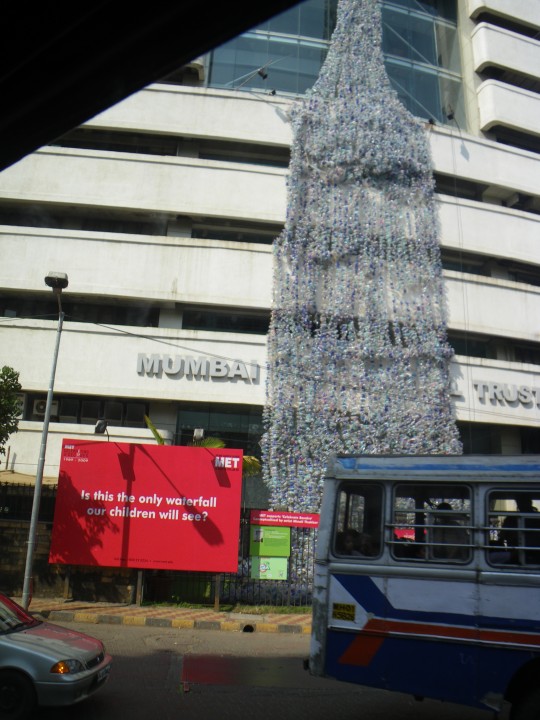Mumbai Panel Discussions
Last report the conference sessions had just begun and once they began it was an exhilarating and exhausting 3 days of panel discussions, interactive programs and yes, some social but first the panel discussions! Companies Promoting Social Benefit Panel:
My friend Ashish, a management consultant and writer was the moderator. He has also set up a training program in his home town of Lucknow designed to boost the employability of underprivileged young people.
A British Monk spoke on the social interaction of corporate, private, religious, government and the individual in society. The other panelist was Clas Newmann, Senior VP, Global Head, SAP Labs based in Bangalore, India. His presentation on CSR (Corporate Social Responsibility) was funny and informative.
In India SAP contributes approximately 554 euros per employee per year to social programs. In a country where a software engineer is going to make 8-10K/ year it is impressive that 90% of their social giving is voluntarily contributed by the employees. They elect to press the button (Clas joked that everything is done electronically at SAP) and give a percentage of their salary to fund social program.
SAP attempts to give 40% of their social funding in cash, 40% in in-kind and 20% in employee paid time. They have also elected to use the volunteer time as team-buiding, rather than going bowling they go to a site to volunteer.
At lunch, I was also able to confirm that the 1997 Sydney Hobart story about us loosing the mast on Morning Glory (owned by Hasso Platner, founder of SAP) and diverting a plane to get another one from New Zealand and putting it on a barge from the airport and working through the night to get it together and just barely making the start and going on to win the race and break the 25 year old race record was indeed true… it seems that the story has reached such proportions within SAP that it had become “mythical”. Again sailing popped up in Mumbai India.

Media Activating Social Change Panel:
This panel discussed the limitations and responsibilities of social media vs. traditional media. For instance in countries like India newspaper readership is actually going up because there are so few with internet access and yet more population and more education. Also the TV news is a time when everyone gathers around the TV, even in the slums so it is a part of bringing the family, community together. This is opposed to the US where Dad is watching sports in the den, Mom is watching Oprah in the kitchen and the kid is watching Nic-kids upstairs.
There is also the question of responsibility for truth. Social media is the ‘democratization of information’. By it’s nature – everyone can post everything it allows people to essentially vote with their postings but ironically, it does not provide for equal and unbiased distribution of information. People don’t seek out the other side of an argument but rather look for support for their own side. I raised the point that the FCC has abdicated its responsibility in traditional media as well. They now fail to provide some level of equality in information by removing the restriction that news outlets had to provide equal time. Thus the surge of the Rush Limbaugh’s on air.
The most interesting concept is that social media actually does not provide for a better society and more social cohesion and equality in modern and western worlds. But the exact opposite is true in repressed countries like China or Russia where social media like Twitter are very important and key resources for fighting for equality and freedom. For instance the “Twitter Revolution” surrounding the elections in Iran. It ironically is also where the intellectually elite gathers as opposed to Western countries where they would gather around newspapers and periodicals.
Unfortunately we did not come up with any solutions other than the emergence of more and more sites like http://www.propublica.org/ or http://www.factcheck.org/ seem to indicate that the public does indeed want to be able to trust their information sources.